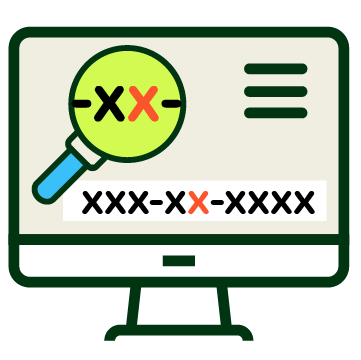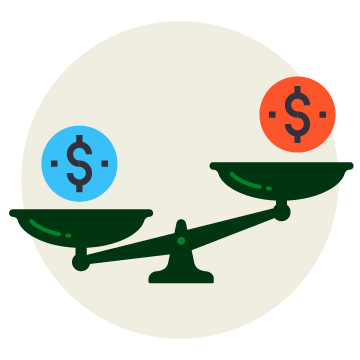4 Factors affecting your tax refund – including how fast you get yours
5 min read
Spruce
“Taxes are so easy to understand” – said no one ever. We get it. Taxes can get complicated. And your refund is a big deal, so how fast you get it and how much you get back matters.
Here’s the good news. We’re here to help you understand the big levers around refunds. That way, you can feel more confident when it’s time for major money moments such as your tax filing.
Let’s look at 4 factors that affect the speed and size of your refund.
Factor 1 (Speed): E-filing without errors

Sending your tax return to the IRS electronically (e-filing) is a popular and secure way to get your taxes done fast. But typos and other errors can cause your e-filed return to be rejected or cause other delays.
As you go through your return, double check the spelling of names, Social Security numbers, last year’s Adjusted Gross Income, and any other numbers typed in by hand.
The extra care can help you avoid an e-file rejection or falling into a category of manual review, which could add extra time to the process.
Factor 2 (Speed): Where you send your refund

Of course, requesting direct deposit is much faster than getting your tax refund by a mailed check. But did you know with Spruce, you can get your federal tax refund up to 5 days early?
To do this, you only need to have your refund direct deposited into your Spruce Spending account.
Plus, the Spruce tax refund recommendation feature can help you with ideas to put that money to good use.
Factor 3 (Size): Withholding and estimated payments

U.S. taxes are a pay as you go system. That means if you have a job that send you a W-2, you’re paying some of your taxes with each paycheck (called withholding). But here’s the part that’s not always understood. Your withholding and your refund are directly related. Generally, the more taxes held back from your pay, the bigger your refund. And, less withholding? Yep, you got it — a smaller refund or a balance due.*
If you’re working as an independent contractor, taxes usually aren’t coming out of your paycheck. Instead, you pay as you go through quarterly estimated tax payments. Like paycheck withholding, the amount of payments impact the amount of your refund.*
Watch out though — on top of owing, not withholding enough or not paying enough quarterly can put you in hot water with the IRS (meaning the IRS may charge you an underpayment penalty).
*If the amount of your withholding or estimated payments is more than your overall tax liability, you can expect a refund. If they are lower than your tax liability, you can expect to have a balance due.
Factor 4 (Size): Life changes

Going to college, getting married, getting divorced, having kids, buying a house. Those are all major life moments. They also affect your taxes because they can change your filing status, your tax bracket, and the credits and deductions you can take.
For example, if you’re single and had a child last year, you may not only qualify for a Child Tax Credit, but you could also move from the Single filing status to Head-of-Household. Both changes can help you reduce your tax bill.
With tax laws changing each year, it’s important to capture all relevant changes as you do your taxes. Tax professionals and do-it-yourself tax programs will ask you questions about what’s new with you since last year. Be sure to cover all the bases!
Understanding taxes is one way to be better with money: Spruce can help with more
Being better with money starts with demystifying money matters and making money management easier.
Spruce lets you:
- Get your federal tax refund up to 5 days early
- Get your paycheck up to 2 days early
- Tuck money away in dedicated saving goals
- Monitor your credit score for free, and
- Tap into fee-free overdraft protection up to $20
All this with no monthly fees, no sign-up fees, and no minimum balance requirement. (See Fee transparency)
This information provided for general educational purposes only. It is not intended as specific financial planning advice as everyone’s financial situation is different.
Was this article helpful?




